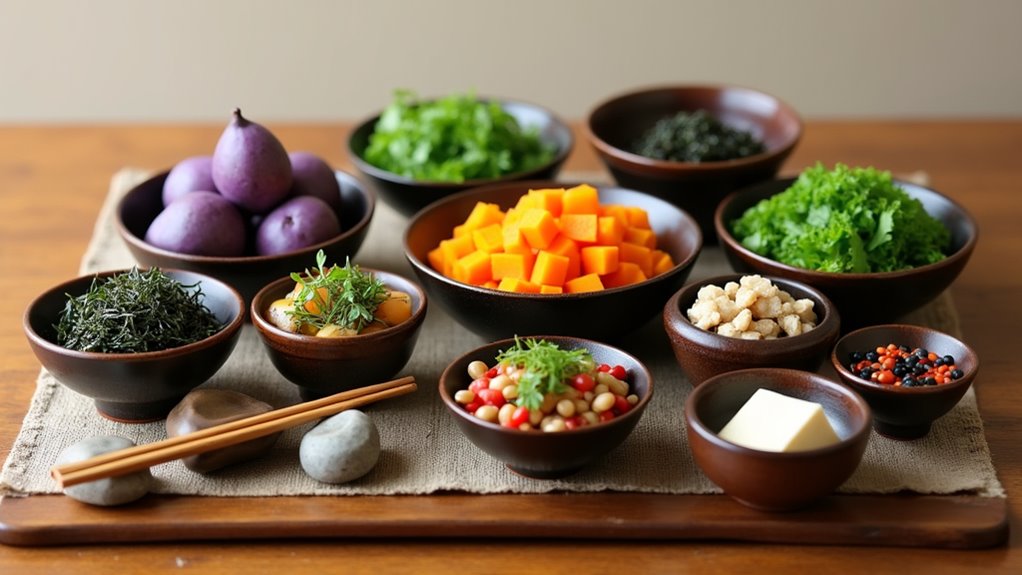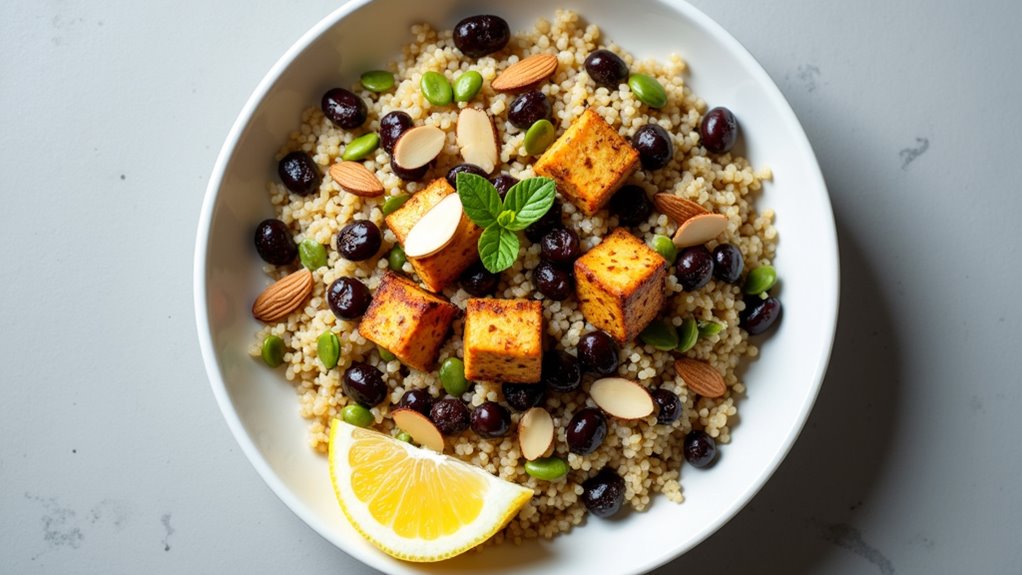While most of us struggle to resist that second helping of pasta, Okinawans have practiced “hara hachi bu” — eating until just 80% full — for generations. This isn’t just some quaint cultural habit. It works. The results speak for themselves: historically, Okinawans have enjoyed some of the highest life expectancies on the planet. Their secret? A diet that’s more than 90% plant-based, with vegetables, beans, and sweet potatoes forming the foundation. Fish, meat, dairy, and eggs? Less than 1%. Talk about plant-forward.
The traditional Okinawan diet isn’t just low-calorie — it’s nutritionally dense. Packed with antioxidants that fight free radical damage, it’s like an internal defense system against aging. Seaweed varieties like konbu and wakame are dietary staples, providing essential minerals including iodine. The diet’s remarkable anti-inflammatory properties contribute significantly to overall health outcomes. Purple and orange sweet potatoes serve as a nutritional cornerstone in the traditional diet. No wonder Okinawans historically had lower rates of heart disease and certain cancers compared to Americans. Their typically low BMIs and minimal weight gain with age aren’t accidents.
Nutrient-rich, not merely calorie-poor—the Okinawan diet is an antioxidant arsenal against aging and disease.
But times change. Fast. Since this 1972, when Okinawa returned to Japanese control, Western influences crept in. McDonald’s happened. KFC happened. The island’s once-pristine dietary patterns shifted toward higher fat intake and increased meat consumption. The results? Predictable. The longevity advantage has begun to erode.
The Okinawan diet shares similarities with other healthy eating patterns like Mediterranean and DASH diets. But it’s more plant-focused than even the Mediterranean approach. And unlike mainland Japanese diets, traditional Okinawan cuisine featured minimal meat.
Beyond just food choices, other factors contribute to Okinawan longevity. Regular physical activity matters. Cultural practices influence health outcomes. Low saturated fat intake helps. While genetics play a role, the dramatic decline in health outcomes following Westernization suggests diet is the dominant factor.








